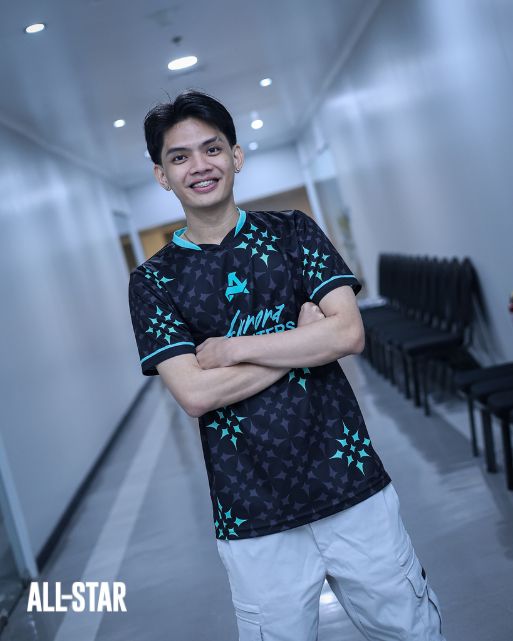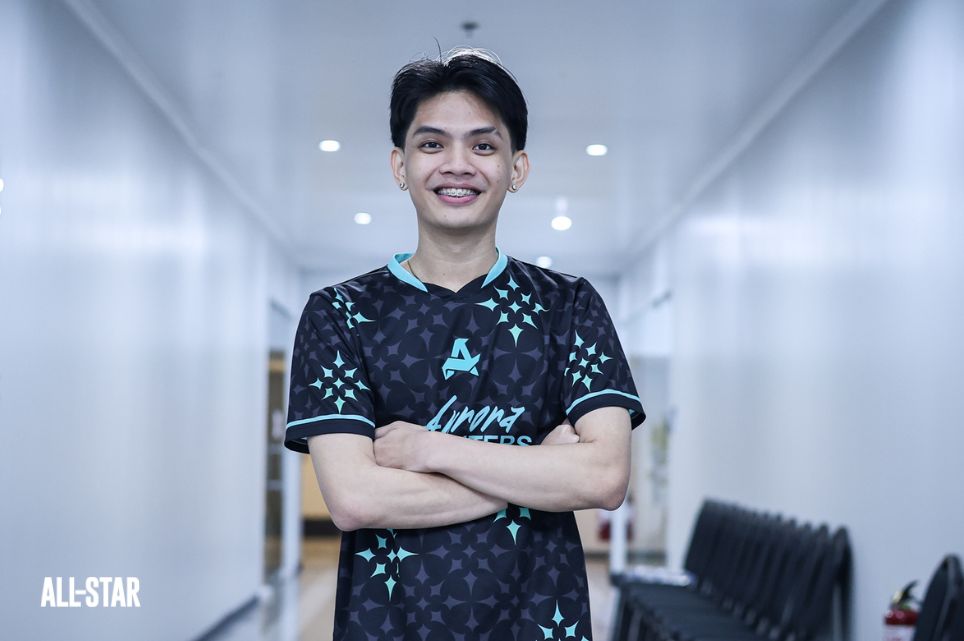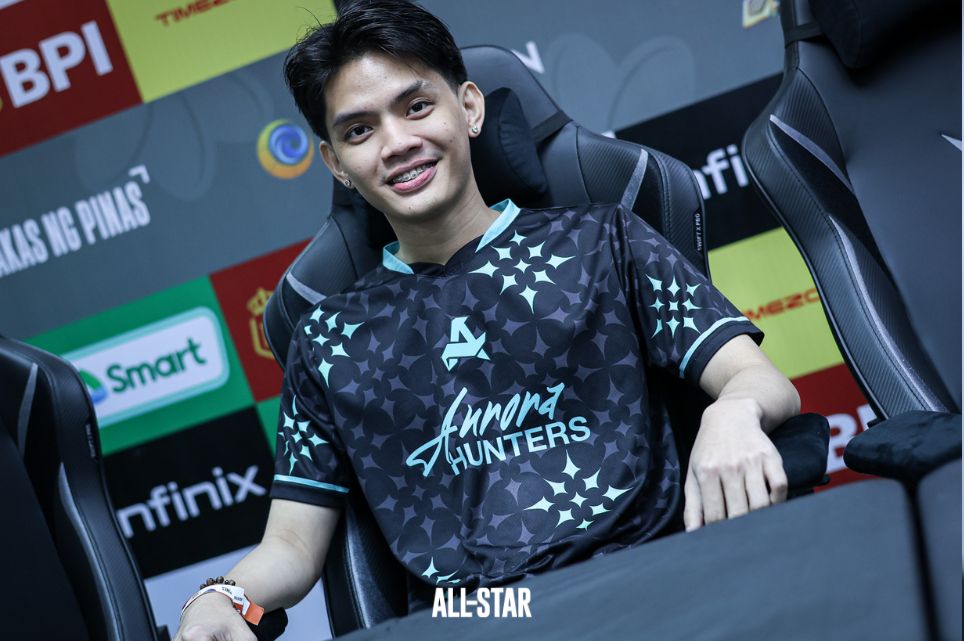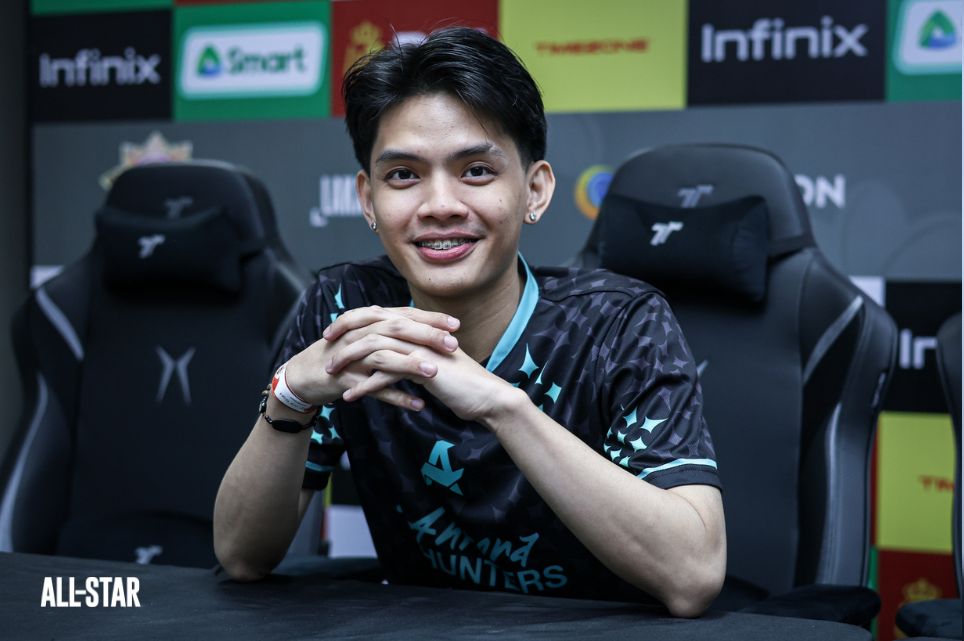Drin: How a Policeman’s Son Found a Battlefield in Esports
In another life, Drin Fontanilla of Aurora Hunters might have been chasing criminals, not creeps.
He was on track to finish Political Science at Far Eastern University—his fourth year was within reach—until the pandemic hit, life paused, and something unexpected filled the silence. Not law school. Not government service. But Mobile Legends: Bang Bang.
His father, a high-ranking officer at Camp Karingal and the embodiment of discipline, had other ideas.
“Gusto nila Papa noon sa government ako magtrabaho,” Drin recalls. (“My dad wanted me to work in government.”) That was the dream his family had for him. But sons, especially the eldest, sometimes walk off-script.
Instead of briefs and hearings, Drin found himself deep in ranked games.
“Mahilig talaga ako mag-Dota dati,” he says. (“I was really into Dota before.”)
ALSO READ:
- “Kay Papa Ako Natuto.” How a Father’s Terrible Gameplay Sparked Lalush’s Esports Dream
- Alodia Teases Return to Esports

MLBB wasn’t love at first sight—he found it underwhelming at first. But peer pressure in coffee shops led to curiosity, and curiosity led to a competitive streak he couldn’t shake.
“Akala ko madali lang siya, pero nung nilaro ko na, nakita ko na lahat gustong manalo. Hindi nagpapatalo.” (“I thought it was going to be easy, but when I played it, I saw that everyone wanted to win. No one wanted to lose.”)
What began as a casual distraction turned into a calling.
And that calling took him far—literally. Drin became the first Filipino MLBB import in MPL LATAM, signing with Dreammax Esports in Brazil. No one expected the boy from Morayta’s computer shops to end up half a world away, speaking broken Portuguese and competing on a foreign stage.

“Ang tingin kasi ng mga org doon, pag kumuha ka ng Pinoy, panalo na kayo,” he shares. (“The orgs there thought that if they got a Filipino player, they’d automatically win.”)
“Pero kulang kami sa preparation. Isang linggo pa lang ako doon, laban na agad.” (“But we lacked preparation. I had only been there for a week before we had to compete.”)
They placed third—not a championship, but still a breakthrough. Drin had proven something: not just to fans, or his team, but to himself.
Despite the language barriers, Brazil welcomed him like family. Some still message him to come back.
“Tuwang tuwa daw si Papa.”
Back home, the people who mattered most still didn’t fully understand what he was chasing—until they saw him under the lights, broadcast live, facing Blacklist International in the IESF finals.
“Hindi nila alam noon,” he says. (“They didn’t know about it before.”)
“Nakita na lang nila ako sa balita.” (“They just saw me on the news.”)
And just like that, the secret was out.
He didn’t hear it directly, of course. That’s not how his father operates. No emotional monologues, no dramatic embraces. But the neighbors told him. Whispers carried from the streets of Quezon City:
“Tuwang-tuwa daw si Papa.” (“They said Dad was overjoyed.”)
There’s something powerful about silent pride. For a father who built his life around rules, discipline, and order, having a son excel in a chaotic world of pixels and patch notes must have felt foreign—but it didn’t make it any less real.

Drin knows the fight isn’t over. Mental fatigue, bad seasons, online bashers—he’s felt it all. He leaves a piece of advice for others who might experience the same hardships.
“Mawala na lahat ng tiwala ng iba sa kanila, pero sa sarili nila, wag mawawala ang tiwala nila. Sa bandang huli, sarili mo pa rin ang kakampi mo. Wag ka mawalan ng tiwala sa sarili mo. Love yourself.” (“Even if everyone else loses their trust in them, they should never lose trust in themselves. In the end, your only true ally is yourself. Never lose faith in who you are. Love yourself..”)
He wants to win—not just for trophies, but to prove that passion, when pursued relentlessly, is its own kind of duty.
“Gusto ko lang patunayan sa sarili ko, na kapag ginusto ko ang isang bagay, kaya ko.” (“I just want to prove to myself that when I really want something, I can do it.”)
And to the kids like him, with dreams their parents don’t yet understand? He says,
“Sumunod kayo—pero kung hindi masama ang gusto ninyo, bakit hindi nila kayo suportahan?” (“Obey your parents—but if what you want isn’t wrong, why shouldn’t they support you?”)


